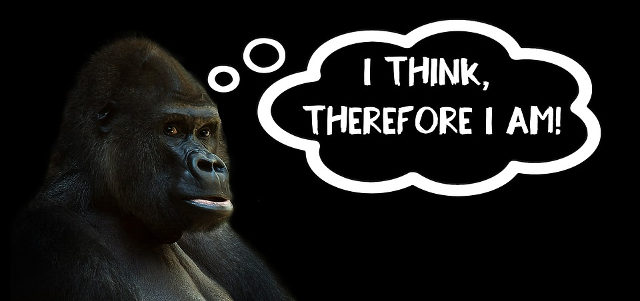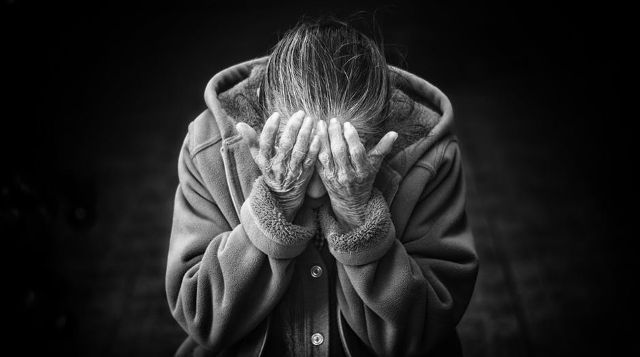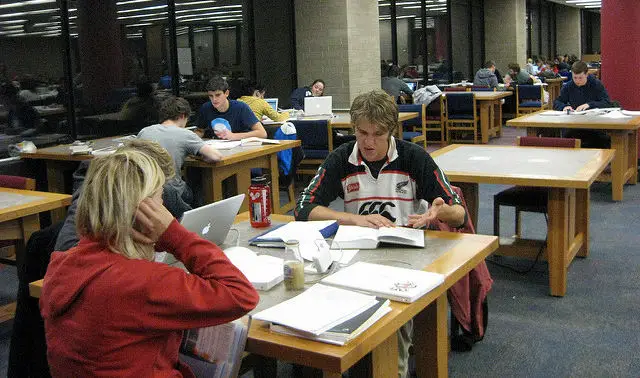Jonathan Dodd’s latest column. Guest opinion articles do not necessarily reflect the views of the publication. Ed
I had a short and ignominious career in the Boy Scouts. In fact, I never even reached the giddy heights of Scoutdom. I was in the Cubs for a while, and I remember the folding of scarves and the smell of the woggle. My memory is cloudy, but I do remember being unable to throw a ball far enough to achieve a ball-throwing badge, and then Akela retired and they couldn’t get anyone to replace her, so the group (or was it a pack?) folded, and that was that.
I also remember various meaningless rituals, standing in lines of six, being in a ‘Sixer’, pointing various fingers towards one’s head, chanting meaningless phrases, like “Dib Dib Dob”, and other pleasant activities. I’m sure they weren’t meaningless, but I don’t remember anyone actually explaining what they meant, or their mystical or practical significance. That was in the days when children were just told what to do by well-meaning adults, who didn’t realise the real significance of the idea of active engagement. I was always a child who needed to know not only what I was being asked to do, but also the reasons for those actions.
Unbridled bullying is the most important thing in their universe
Needless to say, this has got me into a lot of trouble during my life. I remember later, in the prison in which I was incarcerated for the duration of my adolescence, laughingly called ‘Public School’, getting into more trouble than anyone else I knew,  not because I broke any of the rules, exhaustingly enumerated in a special book issued to all inmates, but because I kept asking questions like – “Can you tell me why I have to keep the middle button of my jacket done up at all times, unless I’m seated or in the Chapel, or the Dorm. Or in the room laughingly called the Dayroom, where I have a small wooden cubicle, and which I have to share with 40 others, including many who feel that unbridled bullying is the most important thing in their universe?”
not because I broke any of the rules, exhaustingly enumerated in a special book issued to all inmates, but because I kept asking questions like – “Can you tell me why I have to keep the middle button of my jacket done up at all times, unless I’m seated or in the Chapel, or the Dorm. Or in the room laughingly called the Dayroom, where I have a small wooden cubicle, and which I have to share with 40 others, including many who feel that unbridled bullying is the most important thing in their universe?”
These so-called conversations were always terminated by a harangue shouted into my face, and an invitation to join other reprobates and revolutionaries for a session of Punishments, which always involved some painful exercise in the freezing rain or wind, at one of the only times when my timetable had a tiny space called ‘Free Time’. I would like to emphasise that this was not because I ever broke any rules, but because I simply asked what the rule was for. I read the rule book, from cover to cover, and couldn’t find any rule in there that stated – “The questioning of any rule in this rule book is forbidden, on pain of punishment”. I remember asking why that rule was missing, and received a double dose of refreshing exercise, once again ignoring the idea of ‘Free Time’.
Nobody ever asks them why they weren’t doing any thinking
Sometimes it seems when you’re a child that there are no human rights, or rather, that human rights only apply to so-called Adults. But I’m not bitter. It was a long time ago, and I did learn to survive, and it lit various fires inside me, which keep me warm and focused whenever the cold winds blow through my life. Or when the world starts going backwards, as it seems to be doing at the moment.

I’m not saying that all the adults in my young life (or even now) were evil, or malevolent, or even badly-intentioned. I wrote a letter to my old housemaster a few years after I was released from that place. I thanked him for my experiences there, saying that something had happened to me which I might not have recovered from, had I not become so toughened by the regime I lived under whilst being in his so-called care. He wrote a long letter back, saying how sorry he was, and that he had no idea that this was how I was treated there, and I believed him. These adults were guilty of that most insidious sin, the one where you say you think everything’s all right and you had no idea that they weren’t. What these people should be doing is saying that they never questioned anything, they never even thought about whether what they were doing was good, or right, or even making any sense. It was there, and they did it. So when they say they had no idea, they’re telling the truth. They never thought about it. But nobody, it seems to me, ever asks them why they weren’t doing any thinking.
How we got where we are and how to bring us back on track
This, it seems to me, is the worst thing about our modern lives. Nobody feels it’s necessary to think about anything. I apologise to anyone out there who does think, but I hope that they’ll be agreeing with me rather than feeling insulted that I’ve been too general in my use of words. In my defence, I will admit that I like to stir the pot a little. I’m constantly confronted by the effects of people not thinking when they should, and by people complaining about the results, but not thinking about how we got where we are and how to bring us back on track.

For instance, there’s this austerity thing. The government decided it would be a good idea to cut the amount it spends on social care, and health, and education, and police, and libraries, and public facilities of all kinds. They argued that it was necessary to spend less, and that society would become leaner and meaner. Nobody thought through the inevitable (as far as I could see) results that people would die, from crime and depression, and a lack of care, and neglect, and constant unemployment, and nobody to help or nowhere to sleep and the loss of homes and the weekly desperation to keep children fed and warm and clothed. Nobody thought about the cost of all these things.
What we don’t like and how to get it out of our sight
We have spent a relatively small amount of the total money available on these services in the past, and cutting them is leading towards a time when putting it right and repairing the damage will cost far more than anything saved. I’m talking about the fabric that makes our society becoming threadbare and fraying, when it becomes so ripped and tattered that it can’t be mended. Social cohesiveness is something you can’t wave a wand over, you have to keep working to include everyone. If you tell people they’re not worth the effort, they’re going to fall overboard, and you have to decide whether to stop the boat to pick them up, or whether you can live with yourself after leaving them to their fate.

Either way, you may still be on a ship that’s steaming on in relative calm and safety, but as time goes by, you will find that there’s nobody left to turn your bed down, or to check that the kitchens are being run hygienically. Or there’ll be nobody to nurse you when you pick up one of those mysterious shipboard viruses. We’ve stopped thinking about how we want our society to be and how to achieve that, and instead we just think about what we don’t like and how to get it out of our sight. And then we stop looking, and we stop even thinking we should be thinking about any of it. Not ‘Ask what you can do for your country’, not even ‘Ask what your country can do for you’, just ‘Ask not’.
Usually that desire isn’t altruistic
There has never been any evidence that allowing the rich to get richer has ever benefitted anyone’s economy, or peaceful life, or improved the quality of anyone’s lives. There’s plenty of evidence of the fearful influence that a few rich people can have on governments and world events. After all, what’s the point of amassing so much money, unless you want to use it to wield some sort of power. And usually that desire isn’t altruistic. There are plenty of stories of rich people having some sort of crisis of conscience, and donating enormous amounts to charity, but even then, they pursue their own agendas and use their money to make their own changes. I’m grateful to those few rich people, but I remain sceptical that they know better than everyone else how this money should be redistributed.

I’m grateful to Mr Carnegie, who became immensely rich and built most of the libraries we now accept as our right. But I’m also rather angry that the governments who consistently allowed rich people to get richer and didn’t think it necessary to provide libraries for the education and internal health of the people they were supposed to be representing. I’m also amazed that sometimes people in government actually do something useful and for the general good, like Clean Air Acts, and the purification of water supplies, and sewerage, and Education. They’re rightly applauded for these actions, but they achieve them despite enormous opposition from those who represent these same rich people, worrying that they might not be able to become even richer. And even after the benefits for society and commerce and the opportunities for getting richer are made obvious, they still refuse to spend money continuing this work.
Another country, or another town, or in the next road, or next door
How does that make any sense? And how often do we have to relearn this lesson? How can we call ourselves intelligent and caring, when we refuse to understand these fundamental things? We’re all very capable of becoming very active when our lifestyles are threatened, but we don’t want to stir ourselves when that exact thing is happening to fellow humans who live in another country, or another town, or in the next road, or next door.

I know that nobody ever got rich by spending money. Saying that everyone’s lives are made richer by the availability of help and resources for betterment and health and opportunities doesn’t seem to work when it’s our Council Tax that’s being asked for. And we don’t mind keeping a bit more until our cars are stolen and the Police response is a text message, and their reason for this is based on having their budget cut by 40%. Just because we never go to the Library ourselves doesn’t mean that we shouldn’t be glad to help fund these libraries. The specialist who treats us for that life-threatening illness might well have used their local library for their homework.
Making the same old mistakes every few years
I know. I have the same problems as everybody else. But I don’t understand why we need to go on making the same old mistakes every few years. I wish we could just do some thinking sometimes, that’s all. I like my brain. I like what it can do for me. But I also understand that I need to keep those fires burning, lit so long ago, when I was struggling against the regime back in that place of so-called privilege. I would feel that a part of me had died, if I stopped thinking.

If you have been, thank you for reading this.
Image: pxhere under CC BY 2.0
Image: Robert Sheie under CC BY 2.0
Image: pixabay under CC BY 2.0
Image: Pexels under CC BY 2.0
Image: Petty Officer 3rd Class Gregory A Harden II under CC BY 2.0
Image: infomatique under CC BY 2.0
Image: collegelibrary under CC BY 2.0
Image: Erin Silversmith under CC BY 2.0





